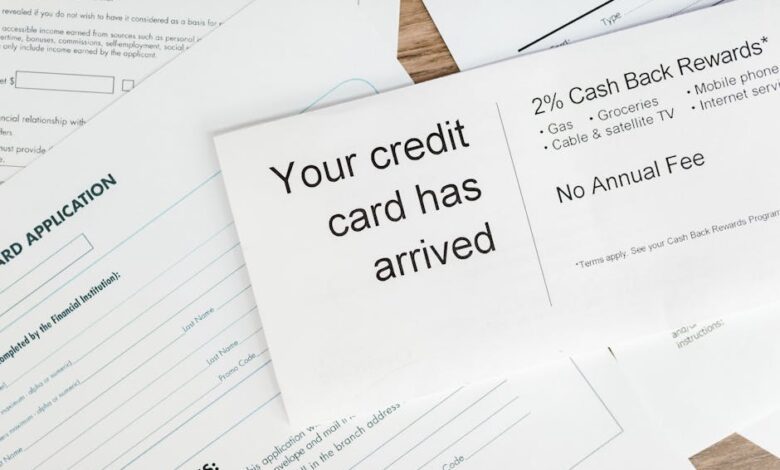Financial Empowerment: A Comprehensive Guide to Effective Budgeting, Debt Management, and Future Planning

In today's fast-paced financial landscape, effective money management is more crucial than ever. Whether you're navigating the complexities of day-to-day expenses or planning for a secure future, understanding the fundamentals of personal finance can empower you to take control of your financial destiny. This article serves as a comprehensive guide, offering practical budgeting tips that lay the groundwork for financial success. We'll explore how to establish a robust emergency fund, implement effective debt repayment strategies, and enhance your credit score. Additionally, we'll discuss the significance of retirement planning, investing in your education and skills, and smart tax-saving techniques. Lastly, we’ll highlight the critical role of insurance in safeguarding your financial future and provide actionable steps for setting and achieving your long-term financial goals. Join us on this journey to mastering your money and building a stable financial foundation for years to come.
- 1. **Mastering Your Money: Essential Budgeting Tips for Personal Finance Success**
- 2. **Building a Safety Net: Creating an Emergency Fund for Financial Stability**
- 3. **Debt Management Demystified: Strategies for Repaying Debt and Boosting Your Credit Score**
1. **Mastering Your Money: Essential Budgeting Tips for Personal Finance Success**
Mastering your finances begins with effective budgeting, a fundamental skill that lays the groundwork for financial stability and success. Here are some essential tips to help you create and maintain a budget that works for you:
1. **Track Your Income and Expenses:** Start by recording all sources of income and tracking your spending over a month. Use apps, spreadsheets, or pen and paper to categorize expenses, which will help you identify spending patterns and areas where you can cut back.
2. **Set Clear Financial Goals:** Define short-term and long-term financial goals, whether it's saving for a vacation, paying off debt, or building an emergency fund. Specific, measurable goals will keep you motivated and provide direction for your budgeting efforts.
3. **Create a Realistic Budget:** Based on your tracked income and expenses, create a budget that reflects your financial situation. Allocate funds for necessities like housing, food, and transportation, while also setting aside money for savings and discretionary spending. Ensure that your budget is realistic and flexible enough to accommodate unexpected expenses.
4. **Prioritize Savings:** Treat savings as a non-negotiable expense. Aim to save at least 20% of your income, if possible. Automate your savings by setting up direct deposits into a savings account, which makes it easier to prioritize your financial future.
5. **Review and Adjust Regularly:** Your financial situation may change, so it’s essential to review your budget regularly. Monthly check-ins can help you assess your progress toward your goals and make necessary adjustments based on changes in income or expenses.
6. **Use the 50/30/20 Rule:** This popular budgeting method suggests allocating 50% of your income to needs (essentials), 30% to wants (non-essentials), and 20% to savings and debt repayment. This simple framework can help you maintain balance in your spending.
7. **Avoid Impulse Purchases:** Implement strategies to control impulse spending, such as waiting 24 hours before making a non-essential purchase or keeping a list of items you need to prioritize your spending.
8. **Stay Educated:** Financial literacy is key to mastering your money. Attend workshops, read books, or follow reputable financial blogs to improve your understanding of budgeting and personal finance.
By implementing these budgeting tips, you can take control of your finances, reduce stress, and work towards achieving your financial goals. Remember, budgeting is not just about restriction; it’s about creating a roadmap to financial freedom and security.
2. **Building a Safety Net: Creating an Emergency Fund for Financial Stability**
An emergency fund is a crucial component of personal finance that provides a financial safety net in times of unexpected expenses, such as medical emergencies, car repairs, or job loss. To build an effective emergency fund, consider the following steps:
1. **Determine Your Goal**: A common recommendation is to save three to six months' worth of living expenses. This amount can vary based on individual circumstances, such as job stability and other financial obligations. Assess your monthly expenses, including housing, utilities, groceries, and transportation, to establish a target for your fund.
2. **Set Up a Separate Savings Account**: To avoid the temptation of dipping into your emergency savings for non-emergencies, open a dedicated savings account. Look for accounts with high interest rates or low fees, which can help your savings grow over time.
3. **Automate Your Savings**: Make saving easier by setting up automatic transfers from your checking account to your emergency fund. Determine a fixed amount to transfer each month, aligning it with your budget. This ensures consistent contributions without requiring manual effort.
4. **Start Small and Increase Gradually**: If saving a large sum feels daunting, start with a smaller, manageable amount. Aim to save $500 or $1,000 initially, then gradually increase your contributions as you become more comfortable with your budgeting and spending habits.
5. **Use Windfalls Wisely**: Consider allocating unexpected income, such as bonuses, tax refunds, or gifts, directly to your emergency fund. This can help you reach your savings goal more quickly without impacting your regular budget.
6. **Review and Adjust Regularly**: Periodically reassess your emergency fund to ensure it aligns with your current financial situation. If you experience significant changes, such as a new job or increased expenses, adjust your savings goal accordingly.
By taking these steps to build an emergency fund, you can enhance your financial stability and reduce stress during unforeseen circumstances, ultimately contributing to your overall financial health.
3. **Debt Management Demystified: Strategies for Repaying Debt and Boosting Your Credit Score**
Managing debt can feel overwhelming, but with the right strategies, it becomes a manageable process that can significantly improve your financial health and credit score. Here are some effective approaches to repaying debt while boosting your creditworthiness.
First, consider the **debt snowball method**. This strategy involves listing your debts from smallest to largest, regardless of interest rates. Focus on making minimum payments on all debts except the smallest one, to which you allocate any extra funds. Once the smallest debt is paid off, move to the next one. This method provides quick wins, boosting motivation and reinforcing positive financial habits.
Alternatively, the **debt avalanche method** prioritizes debts with the highest interest rates. By focusing on these first, you can save money on interest payments over time, ultimately reducing the total cost of your debt. This approach is more mathematically efficient but may take longer to see tangible results, which can be discouraging for some.
Regardless of the method you choose, it’s crucial to create a detailed budget that accounts for your income, expenses, and debt repayments. This will help you identify areas where you can cut back and allocate more towards debt reduction. Many people find success by reducing discretionary spending and redirecting those funds toward their debt.
Additionally, consider consolidating your debts through a personal loan or a balance transfer credit card. This can simplify payments and potentially lower interest rates, making it easier to manage your debt. Just be mindful of any fees associated with these options and ensure you understand the terms before proceeding.
Improving your credit score is equally important as repaying debt. Start by making all payments on time, as payment history is a significant factor in credit scoring. Set up reminders or automate payments to help you stay on track. Additionally, keep your credit utilization ratio low—ideally under 30%—by not maxing out credit cards and paying off balances regularly.
Regularly reviewing your credit report can also help you spot any inaccuracies that could negatively affect your score. If you find errors, dispute them promptly to ensure your credit report accurately reflects your financial behavior.
By employing these strategies, you can effectively manage and repay your debt while simultaneously enhancing your credit score, paving the way for a healthier financial future.
In conclusion, effectively managing personal finances is a multifaceted endeavor that requires careful planning, discipline, and a proactive approach. By mastering budgeting techniques, you can gain a clearer understanding of your financial situation and make informed decisions. Building an emergency fund ensures you have a safety net during unexpected circumstances, while strategic debt repayment can significantly enhance your credit score, paving the way for better financial opportunities.
Retirement planning is not just a future concern; starting early can make a substantial difference in your long-term financial wellbeing. Investing in yourself through education and skill-building enhances your earning potential and job security. Additionally, employing smart financial strategies to save on taxes can free up resources for savings and investments.
Insurance plays a crucial role in safeguarding your assets and providing peace of mind, while setting and working towards long-term financial goals keeps you motivated and focused. By implementing these tips and strategies, you can build a solid financial foundation that not only protects your current assets but also sets you on a path toward achieving your dreams and aspirations. Remember, financial health is a journey, and taking consistent, informed steps is key to lasting success.





